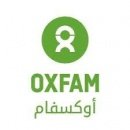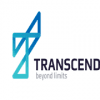Consultancy: Protection Analysis OPT
الوصف الوظيفي
لقد انتهت صلاحية هذه الوظيفة في 2016-09-12
تصفح أحدث الوظائف
عند التقدم لاية وظيفة عن طريق الانترنت، لا تقم بإعطاء معلومات بطاقة الأعتماد او أية معلومات بنكية / مالية لصاحب عمل. نصيحة من جوبس لحمايتك :
آخر الوظائف المعلنة بواسطة
OXFAM International
المسمى الوظيفي
تاريخ النشر
AIDA Senior Policy & Advocacy Lead
القدس, رام الله والبيرة
9, Jul
Information and Data Management Assistant
قطاع غزة
23, Jun
WASH Engineering Officer
قطاع غزة
18, May
Project Officer
رام الله والبيرة
7, May
Protection Field Officer
قطاع غزة
5, May
Cash Support Officer
قطاع غزة
5, May
Tracking Assistant
قطاع غزة
1, May
AIDA Operation Coordinator
القدس, رام الله والبيرة
15, Apr









